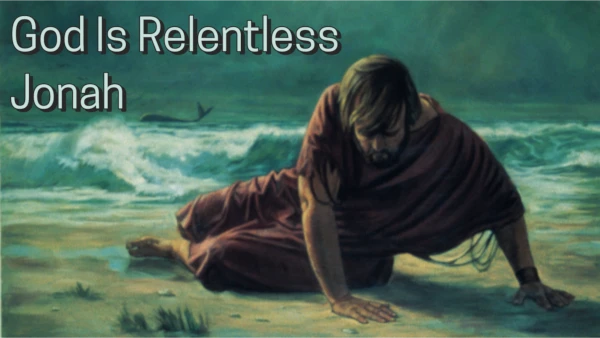Recall from our previous study that the people of Nineveh repented at the preaching of Jonah, and that God therefore relented from the destruction of the city that Jonah had foretold in his brief prophetic message. Here in Jonah 4 we see that Jonah was highly displeased with the compassion God showed toward the Ninevites, forgetting the compassion God had shown to Jonah himself by rescuing him out of death through His sovereign provision of the great fish that swallowed and preserved him. God’s mercy upon Nineveh is not at all what Jonah expected, and he didn’t hesitate to tell God exactly how he felt about it.
Topic: repentance
In our study of Jonah so far, we have seen God’s relentlessness in His pursuit of Jonah when the so-called “Reluctant Prophet” tried to run away from God’s call for him to go to Nineveh. Then we saw God’s faithfulness in rescuing Jonah out of death, and Jonah’s gratitude for God’s mercy. Now in Jonah 3, we see God’s infinite grace and mercy not only upon the prophet he rescued out of death, but also upon the Ninevites to whom God called Jonah to preach a message of repentance. God’s grace is particularly manifest in that He knew the Ninevites’ repentance was only temporary in their fearful response to Jonah’s prophecy of their destruction.
All of us have caused harm to someone during our lives – even our new lives in Christ – either intentionally or unintentionally. Our sins can harm not only ourselves but often have widespread consequences for those around us – especially our loved ones. Likewise, the sins of others can have unforeseen impacts upon us. Every Christian needs to seek forgiveness for our sins not only from God, but also from those whom we harm through our sins. Even more importantly, we need to be committed to offer grace, mercy, and forgiveness to those whose sins hurt us. In this we model Jesus’ own love, grace, forgiveness, and mercy.
All of us are wretched sinners – even King David who was called a “man after God’s own heart” yet was a wicked adulterer and murderer. Nevertheless, God is willing and able to forgive our sins and cleanse us from all unrighteousness as David himself wrote in Psalm 51 – his beautiful prayer of repentance.





